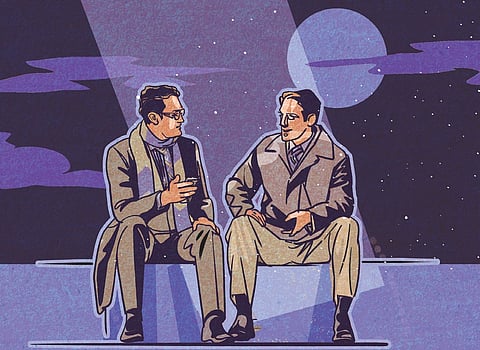Are adult friendships really that hard; Why not make the effort?
Despite the plethora of digital platforms that promise connection and community, 79 per cent of GenZs and 71 per cent millennials describe themselves as lonely. In the US, 12 per cent of adults say that they have no close friends. While finding avenues for connection have increased exponentially over the years, maintaining friendships, especially adult friendships, have become harder.
Life gets busy. Work becomes demanding. People have other important stuff to take care of but that doesn’t quite explain the phenomena. Friendships fade away gradually, then suddenly. Slowly people get comfortable with not making the effort to see their friends. There could be that occasional text but the willingness to do something together or partake of a shared adventure tends to reduce over time.
Evenings for most are dedicated to Netflix and weekends to the chores that have piled on from the week. This isn’t true for everybody; I am referring to a broader trend I have observed over the years. ‘Netflix and chores’ is the more predictable option with minimal chances of disappointment. A friend could cancel plans last minute but the Netflix show will be ready to delight you the moment you press the button.
We have been nudged into the humdrum of efficiency at work and predictability at leisure. The upside is that everything is on the calendar, neatly stacked in our schedule. The downside is that it leaves a tiny window for serendipity and spontaneity. When was the last time you surprised an old friend? Most people will have to scratch their heads to remember.
Adult friendships need effort. When you are in university or graduate school, there are ample avenues to create shared experiences. The depth and frequency of interactions ensure that meaningful bonds are formed over the years. However, when people move on to a different phase of their lives, they prioritise settling in. The willingness to look back and nurture older bonds makes way for more practical networking and agenda-based associations.
It is not that people are wired to hang out with those who offer a certain ‘utility’. If asked, most people would say they value their friendships; they just don’t have the time. I have a simple rule: If we consistently don’t have time for something, it means that it is not a priority. The friendship may still be valuable (in theory) but it isn’t valuable in the moment. The return on invested time doesn’t seem worth it to most.
Then there is the issue of change. The friend you knew back in college could have turned into someone you just don’t recognise. She/he could be far more or far less successful than you are. The difference in outlook and career trajectory also make adult friendships challenging.
I know I am presenting a bleak outlook here but it may be helpful to recognise where we stand on the spectrum. If you read this and think, the theme doesn’t resonate with you, that’s a great thing. You probably are among the minority who managed to make room for friendships despite everything going on.
However, if this piece makes you pause, it may be worthwhile to recalibrate how you spend your time and who you spend it with. Beyond family, friends play this pivotal role of reminding us who we once were and who we are becoming. They have this unique lens to view your life as a novel: Just far enough to see the changes, and close enough to connect the dots to your former self.
Friendships will fade. That’s part of life, but you shouldn’t let them go without a try. Recently a friend from high school called me from Canada. I had seen him on social media, but we hadn’t spoken in 15 years. At the time I was moving homes and starting my PhD at Oxford. I almost cancelled the call because figuring out time zones was becoming hectic, but he just picked up the phone and dialled. We spoke for an hour or so and reconnected over our love for cricket, adventures in rickety buses in Delhi, and random elements of our lives. For me, it was one of the highlights of the year gone by. I realised I had forgotten so much of my former self.
Even though I am blessed to have a reasonably strong circle of friends, there are many I have not been able to speak to for a while. Maintaining our bond, at least in part is up to me. I can always find an excuse not to pick up the phone and dial but what if I didn’t. What if we didn’t?
Utkarsh Amitabh
CEO, Network Capital; Chevening Fellow, University of Oxford
Posts on X: @utkarsh_amitabh

